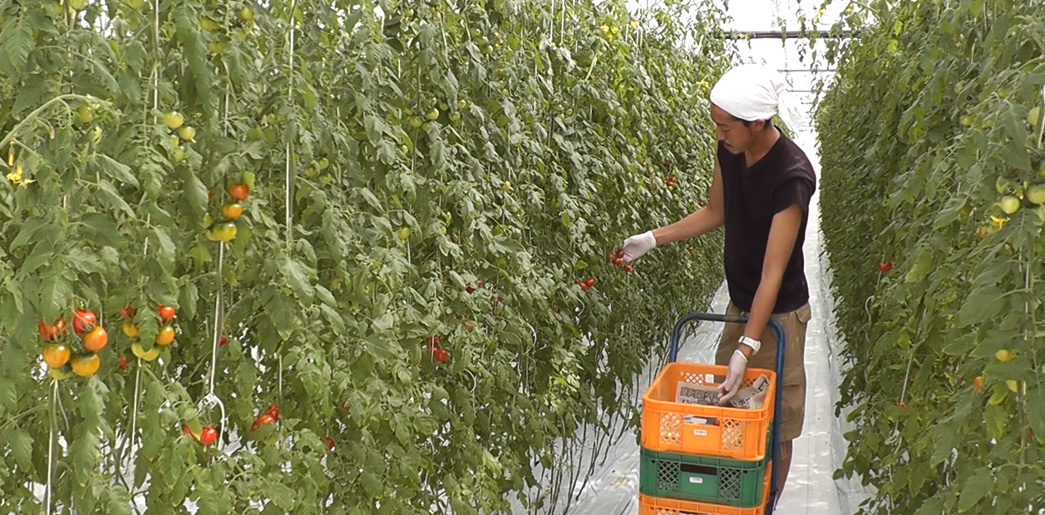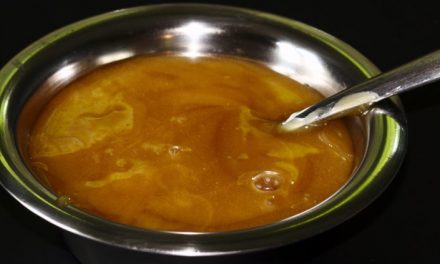As the video below shows, the firm’s Integrated Membrane Culture, or IMEC, is a technology for farming using a substrate that’s made from hydrogels (a film similar to those used in baby’s diapers). There is no soil is needed because the plants absorb water and nutrients from the film.
 Strawberries grown on the ‘film’
Strawberries grown on the ‘film’
The greens can grow considerably if liquid nutrients are given to them from above and below, through the film, according to Yuichi Mori of Mebiol and Waseda University.
The film looks like regular plastic wrap but is full of nano-size holes. It prevents bacteria and viruses from harming the plants, so chemicals aren’t needed.
An impermeable ground film prevents any soil contaminants from reaching the plants, so it can be used anywhere. Mori and collaborators even grew tomatoes in the desert of Dubai using the films.
In a recent TED talk, Mori said the film could be used to help grow plants in areas of Japan where the soil has been contaminated from the leaking Fukushima Daiichi nuclear plant or the March 11 tsunami.
Mori and colleagues have grown some 80,000 tomatoes in different varieties through film farming, and the produce is already sold in supermarkets and online.
They’ve also grown melons, cucumbers, strawberries, lettuce, and paprika. Mori says the tomatoes are very sweet.
Mebiol plans to set up a model film farm at JA Miyagi, an agricultural cooperative in part of Japan hit by the March 11 quake and tsunamis. It also wants to improve the film so it can host larger plants such as trees.
*Article originally appeared at Minds.












